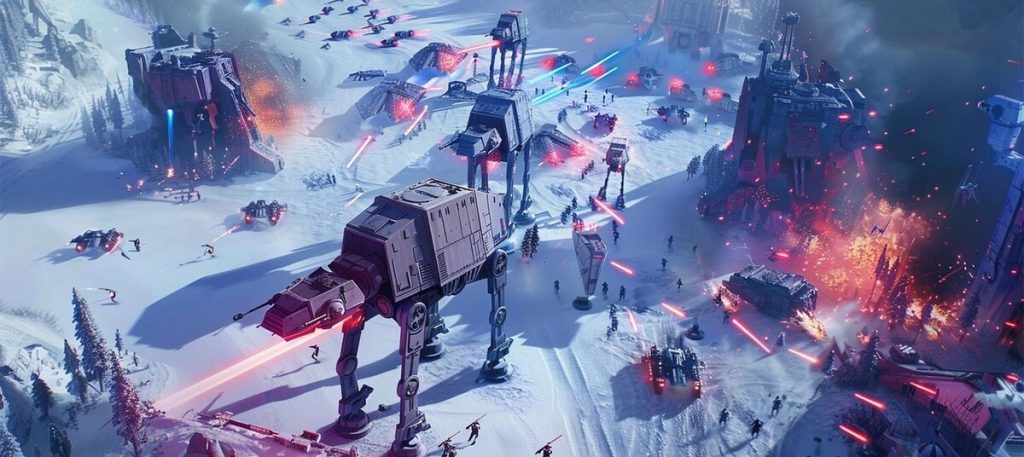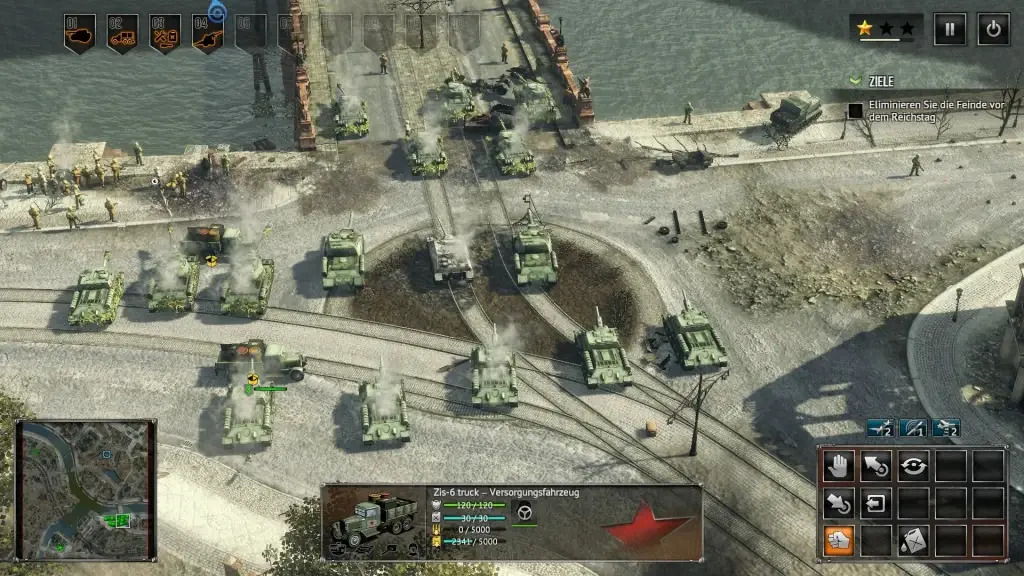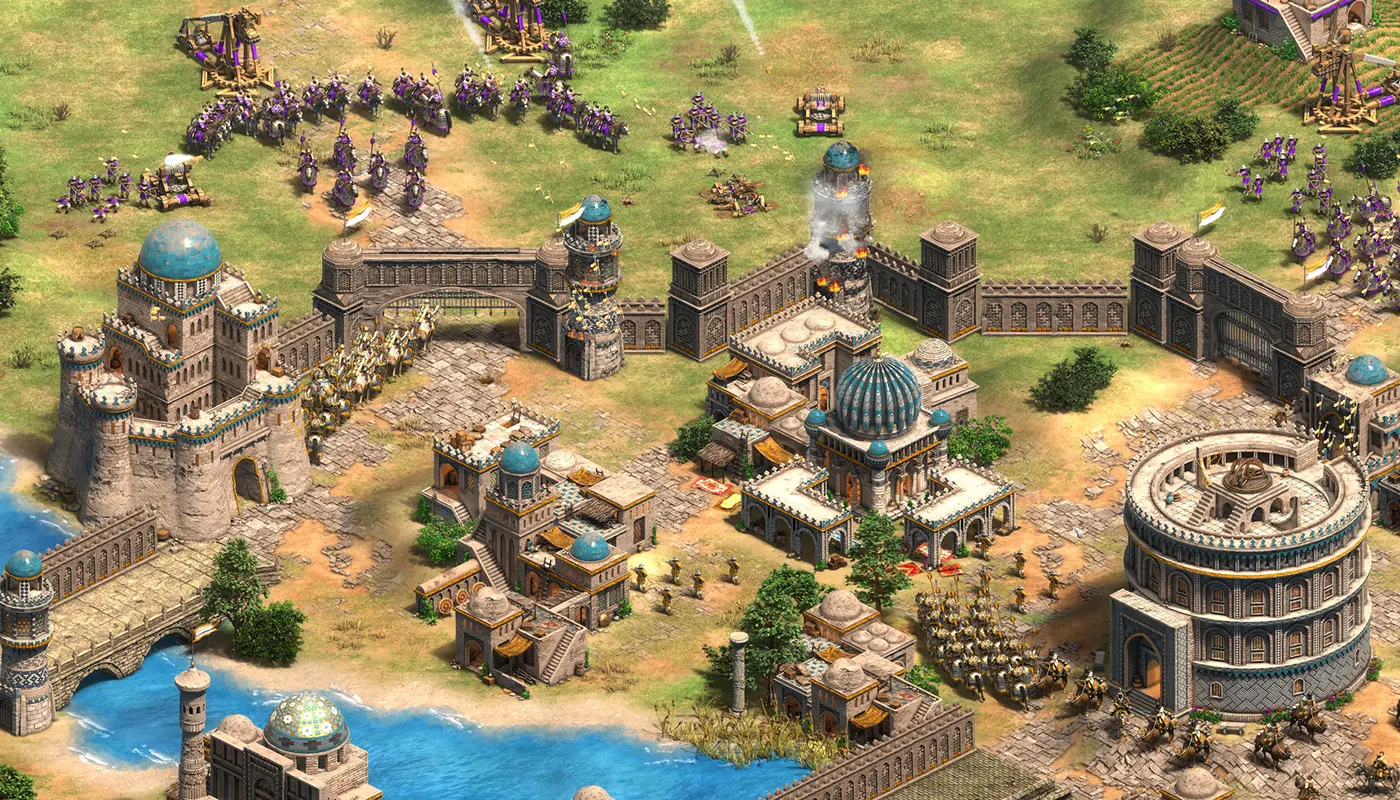The PC strategy genre continues to be one of the most popular among players. Every year, developers offer fresh, more complex, and engaging games that challenge players to think about how to improve existing elements and introduce innovations to familiar mechanics. In 2025, there will be a significant number of new PC projects that cater to both classic RTS enthusiasts and those who prefer more flexible strategies with RPG and other genre elements.
New PC Strategies in 2025: Trends and Directions
 Many developers have decided to use innovative mechanics that were previously unfamiliar to fans of the genre. Many projects promise players not only traditional elements such as army management or empire building, but also original approaches that include survival elements, deep storylines, and even multiplayer cooperations. It is worth noting that in 2025, several new strategy games with unique graphics will be released on PC, which will truly surprise players with their atmosphere. The combination of old traditions and modern technologies will make these games unlike any previous projects.
Many developers have decided to use innovative mechanics that were previously unfamiliar to fans of the genre. Many projects promise players not only traditional elements such as army management or empire building, but also original approaches that include survival elements, deep storylines, and even multiplayer cooperations. It is worth noting that in 2025, several new strategy games with unique graphics will be released on PC, which will truly surprise players with their atmosphere. The combination of old traditions and modern technologies will make these games unlike any previous projects.
Espiocracy
The gaming industry has long avoided the topic of global intelligence. Espiocracy breaks the mold. The project offers the control not of armies or empires, but of intelligence networks within the major powers of the 20th century. The player takes control of a structure like the CIA, KGB, MI6, or Mossad, and builds not a front, but a spy network. Each step is not a direct attack, but an information attack, subversion, provocation, or infiltration.
The world is presented as a historical map, where each country develops according to its historical characteristics — its economy, culture, and diplomatic relations. However, the outcome changes depending on the success of the operation: a coup in Chile, the bribing of the Iranian elite, and the escalation of civil protests in Berlin. Instead of military campaigns, there are decades of quiet warfare.
The title uses its own decision-making mechanics, which lack the usual “base building.” The entire strategy is in the minds of the analysts. It’s not possible to spam the enemy with units. The one who wins is not the one who is faster, but the one who is more cunning. Each turn unfolds a new game of geopolitical chess, with acts of sabotage, compromising evidence, and traps for allies.
Falling Frontier
Most space strategies focus on ships and battles. Falling Frontier changes the optics. The game turns logistics into combat mechanics. To build a fleet, you must first organize a supply chain. To win a battle, you must correctly calculate the distance, fuel consumption, and arrival time of reinforcements.
Each system is procedurally generated. The layout of planets, orbits, and resources is never repeated. The strategist plans not only attacks but also routes, supply bases, and communication nodes. A simple logistical oversight can lead to a starving garrison on a remote colony or the failure of an exploration mission.
Falling Frontier adds a sense of scientific authenticity. Ships don’t just fire; they take damage, lose systems, and malfunction. A single hit to the engine can derail an entire mission. In this new PC strategy game from 2025, the focus is not on combat but on route planning, logistics, and technical precision.
Fragile Existence
Fragile Existence rejects the usual strategic models. The project does not offer to build an empire, does not call to conquer the galaxy, does not dictate the rules of the genre – it puts the player in a vulnerable position. The focus is on the remnants of humanity, fleeing from an unknown threat after a sudden apocalypse. States disappeared, structures collapsed, there was only an expedition in search of a new home.
The game unfolds a global sci-fi scenario, in which you have to manage not colonies, but a wandering fleet. Each ship is a separate life support unit. Each decision is an attempt to prolong existence. Where to get oxygen, how to distribute resources, what to sacrifice for the future. At the core are chains of choices without an obviously correct move.
The key feature of Fragile Existence is the combination of strategy and survival. The player must not only plan their development, but also anticipate crises. A failed jump can lead to the fleet being stranded in a dead zone. A mistake in logistics can result in the loss of lives on board. All of this is presented through a narrative, where the fate of humanity is not a number, but a living story.
The world is dynamically generated. The player will encounter hostile factions, destroyed stations, and mysterious signals along the way. Each choice presents an opportunity to attack, avoid, or explore. Tactical decisions are intertwined with moral ones. Each game is a new story where the player doesn’t build, but saves. Fragile Existence offers a new direction for PC strategy games in 2025, combining sci-fi storytelling, survival, and dynamic conflict.
Whiskerwood
Whiskerwood is an aesthetically distinctive society simulator in which mice build a civilization under the oppression of a cat dictatorship. Urban buildings, social structures, and logistics are built in a miniature world where tiny creatures live according to their own laws, and every grain is a strategic resource.
The player does not control armies; instead, they develop a rodent settlement. They must build houses, burrows, warehouses, training centers, distribute food, and ensure security. The mechanics are based on a symbiosis of economic strategy and RPG. Each resident is not an abstraction, but a unique character with characteristics, a profession, and a story.
The new mechanics of interactions allow you to build relationships between members of the community: friendship, conflict, cooperation. This means that the system is based not only on resources, but also on internal policy. This decision makes Whiskerwood much deeper than it might seem from the visual style.
Humor and visual lightness deceive: under the cartoon shell hides a well-thought-out simulator with mechanics of survival, diplomacy and planning. Even external threats (in the form of predators or weather disasters) require the ability to adapt, not just react. Whiskerwood brings a unique author’s style to PC strategy games in 2025, where a complex simulator with a focus on survival, interaction, and the development of a new community lies beneath the mask of a mouse kingdom.
What can we expect from new PC strategies in 2025?
The projects promise not only improved graphics technologies, but also the improvement of mechanics, the emergence of new characters, as well as a rich selection of factions and races for the game. Attention will be paid to the development of diplomatic systems, the creation of alliances, and the implementation of long-term strategies. It is important to note that the titles will include various RPG elements, allowing players not only to manage armies but also to participate in the development of the world and interact with its inhabitants.
Perspectives of the strategy genre on PC
 Strategies continue to evolve, combining elements from various genres and providing users with more freedom in decision-making. Games expected in 2025 promise greatly improved mechanics and more captivating stories. Despite all the innovations, the genre will still be in demand due to its depth and versatility.
Strategies continue to evolve, combining elements from various genres and providing users with more freedom in decision-making. Games expected in 2025 promise greatly improved mechanics and more captivating stories. Despite all the innovations, the genre will still be in demand due to its depth and versatility.
 en
en  de
de  ar
ar  es
es  nl
nl  hi
hi  fr
fr  it
it  pt
pt  el
el 









